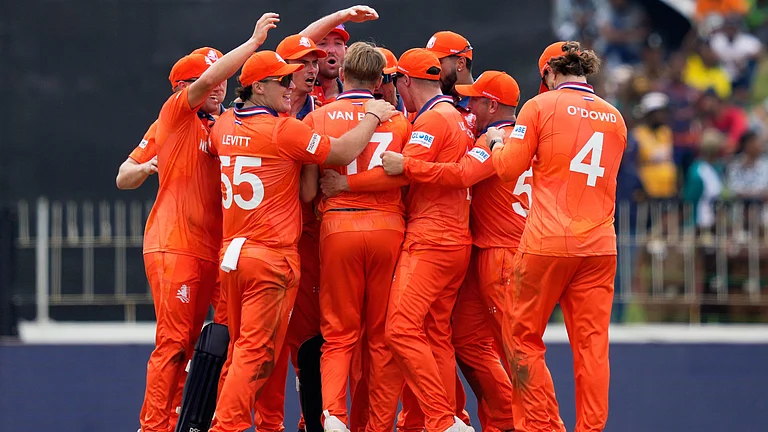Salim Khan, of the Salim-Javed of the screenwriting team, was born with a silver spoon in his mouth, or least a silver-plated one. He grew up in Indore, son of a police deputy inspector-general and, as a student, drove around in a Jaguar and played cricket for the college team. A director spotted the handsome young man on a visit to the city and offered him a role in his film. K. Amarnath’s Baraat was released in 1960 and sank like a stone. Salim Khan was not much of an actor and struggled for another eight years. It was his son, Salman Khan who, years later, would became a superstar.
Javed Akhtar, nine years his junior, was the son of Jan Nisar Akhtar, a successful writer of film songs. His growing up years were not happy. He lost his mother when he was eight and, as it happened, could not get on with his step-mother. He left home and did odd jobs in Bombay’s film studios, often sleeping on the premises.
When Salim and Javed met and formed a writing team, the collaboration was like no other. They redefined the way our films were written in the 1970s and became phenomenally successful. The two started out together on the payroll of the story department of Sippy Films at Rs 750 a month. Their first film was Andaz (1971), in which they shared credit with three other writers. It was in their next film, Haathi Mere Saathi (1971), that the two got full credit. Both films were hits and the hyphenated Salim-Javed team was on its way. Together they wrote 21 films, some of them truly memorable. Sholay (1975), for instance, appears on everyone’s list as one of the best Hindi films ever made. But quite a number of their films were real stinkers and most of their plots made you wonder where you had seen all this before! The story of Sholay was plucked from Kurosawa’s Seven Samurai, which was inspired by Hollywood’s The Magnificent Seven. Deewar (1975) borrowed heavily from Mother India and Gunga Jumna.
The 1970s was the worst decade (till then) of Indian cinema. Salim-Javed were not responsible for that, but they exploited the prevailing taste. This led logically to the ’80s—by which time decades-old cinema halls were rat-infested with foul toilets. The middle class stopped going to films and preferred watching them on video at home, if they watched at all. The films catered to the taste of the front benches, with gratuitous violence and rape scenes and heroines running around in wet saris. The Salim-Javed films were certainly superior to the run of the mill product, but not by much. Their specialty was good brother/bad brother and angry young man themes with Amitabh Bachchan the prefered actor. Dilip Kumar once said that there were three films that he regretted not doing, Baiju Bawra, Pyaasa and Salim-Javed’s Zanjeer (1973), which made Amitabh a star. Shakti (1982) was the last of the Salim-Javed films. Two films were released after the team’s break-up, Zamana (1985) and Mr India (1987).
No one knows for sure why Salim-Javed split after 11 years of partnership. At one time, they were thick as thieves. When Javed decided to marry Honey Irani, he requested Salim to take his proposal to her mother, since he was estranged from his father. (The marriage didn’t last, but that’s another story.) After the split, their relationship went from bitter to neutral to the current spell of cordiality. Their children, all in films, have always got on well. I cannot recall when I last read a better book than this on Bollywood. It tells you all you need to know about the two scriptwriters. It is also essential in understanding the cinema of the 1970s.






















